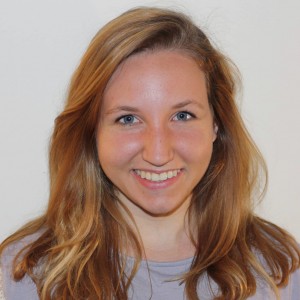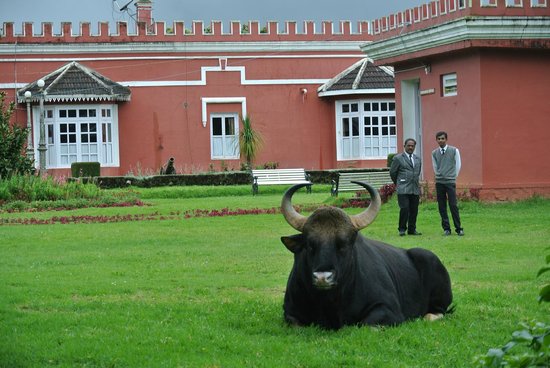Dear classmates –
As those of you from the Carolinas to Connecticut know, the blizzard on the weekend of January 22-24 wreaked havoc with people’s plans. In particular, the declaration of the state of emergency in Pennsylvania on the 21st forced the cancellation of the Cornell Alumni Leadership Conference (CALC), due to start the next morning, for the first time in 111 years. Fortunately, the few class officers and council members who arrived early got out before the storm.
This class letter has a bit of an international focus:
- Our email blast to the class inviting area alumni to a class dinner in Philly brought a response from a classmate in Beijing; he couldn’t make the dinner but wants to re-engage with the University.
- Rachel Stein ‘18, our intrepid Class of ’73 Scholarship recipient, is escaping the Ithaca winter by heading south – to south India, that is.
- Continuing the theme of looking at ways in which classmates combine their vocations with volunteering, hear from Bill McAleer, one of two classmates who is currently a member of Cornell’s Board of Trustees, about his work on the University’s governing body.
- What is the work of the Class of ’73, and how do your class dues support that work?
A classmate reconnects – from Beijing
One of my greatest pleasures as a class officer is getting news of classmates who re-engage with Cornell and the class after a long hiatus. Even as late as our 35th and 40th Reunions, 20 – 25% of the attendees were there for the first time. No matter how far you’ve traveled from the Hill, or how long you’ve been away, it’s never too late to reconnect with Cornell.

I got an unexpected response from the email blast we sent out in January inviting classmates to join us for events and dinner at the Cornell Alumni Leadership Conference. It was from Yen J. “Jo” Chen, ChemE ’73. He introduced himself, saying he is currently the Managing Director and VP of Greater China for a major energy infrastructure, refining, and petrochemical technology firm, and has been living in China for the past ten years, currently in Beijing. He said: “I was not active in Cornell alumni affairs, but I now do have the interest. Therefore, can you help me and advise me whether there is a Cornell alumni organization in Beijing or even Shanghai.”
I was happy to put him in touch with the Cornell Clubs in Beijing and Shanghai, and to tell him that President Garrett will be visiting Beijing as part of her world tour to meet alumni. I asked him for his reflections on his time at Cornell and on living in China. Here’s what Jo had to say.
Our Class of ’73 Scholarship recipient is studying in India

Our current Class of ’73 Scholarship recipient, Rachel Stein ’18, a freshman in the College of Architecture, Art, and Planning, is spending her spring semester as part of the Nilgiris Field Learning Center program in southern India. To give you some idea of what it takes to get around there, Google Maps says it’s 175 miles from Kotagiri, where the Center is located, to Bangalore, but it takes over six hours to make the trip. Here’s Rachel’s update:
Good Evening!
I am so sorry that it has taken me this long to get back to you! I am indeed in India this moment, in the Nilgiris Mountains, where it is just 9:30 AM (11 PM Eastern Time). For the first five weeks or so my classmates (both Cornell students and students from nearby towns and tribes) and I will be taking classes regarding ecology, nutrition, anthropology, and urban planning. Once those conclude we will begin selected research projects. My project will be looking at the interaction of the wild goar (which is a sort of bison common to the area) and humans. I am particularly interested in the relationship between nature and the built environment, and how tribal communities have been adapting to a rapidly urbanizing and globalized world. It has been quite an experience trying to adapt to a new country that is so vastly different from the U.S. But hard things also come with reward.
As for last semester––it feels world away. It definitely went faster than any semester yet, but it was definitely also the most rewarding. I enjoyed my classes, the comfort of getting to know people and place a bit better, and the feeling of finally getting in the groove of college life.

I am sorry as well that I wasn’t able to attend [the Cornell Alumni Leadership Conference; see note below]. I hope it went well, and I do hope to attend in the future! How was the conference and seeing old friends? How have you been doing? It was good to hear from you!
Note: We voted at our class meeting at the Cornell Alumni Leadership Conference (CALC) in January 2015 to invite our current scholarship recipient to attend CALC every year starting in 2016, with the class paying the cost. We decided years ago that one of the ways our class can “pay back” to Cornell is by mentoring the next generation of volunteer leaders, and encouraging our scholarship recipient to become an active, engaged alum is part of that mission.
What does Cornell’s Board of Trustees do? A classmate tells us
One of the aspects of Cornell that is largely unnoticed despite being in plain sight is that it is a $3.5 billion dollar a year business with nearly 10,000 employees. Cornell’s Board of Trustees is invested by University bylaws with “supreme control” over this behemoth.
Sixty Cornellians are currently privileged to serve as voting members on the Board (this doesn’t include four voting ex officio and 100 emeritus members). They represent constituencies such as students, faculty, employees, and alumni.

Issues such as creating new units such as the College of Business, constructing and renovating buildings, and approving the annual budget and tuition, are all subject to Board involvement and approval.
Three of our classmates – Abby Joseph Cohen, Bill McAleer, and Howard Milstein — currently are or have been trustees. I spoke with Bill McAleer Hotel ’73, MBA ’75 to understand the path by which he came to be a trustee and what a trustee’s duties are.
In March and April, all Cornell alumni/ae will have a chance to vote for two fellow Cornellians to represent them on the Board of Trustees. Only about 10% of Cornell’s 240,000 living alumni/ae vote, and a couple of hundred votes or fewer often decide these elections. This is truly an election where your vote counts! Please take a few minutes to vote when you receive your email or hardcopy ballot.
Support the work of the Class of ‘73
Every undergraduate who enrolled with the Class of 1973 is, by definition, a member of the class of 1973. Classmates engage with Cornell in many ways, but only about one classmate in five supports the work of the class of ‘73 by paying class dues. Since the dues solicitation season is starting, and there have been many changes in the last few years, I want to explain a few things about the purpose of class dues and the current dues process as a series of FAQs.
What do my dues pay for?
The three main calls on the class treasury are class communications, Reunion planning, and subsidizing class events.
Class communications include the dues solicitation mailings, some of which are done by Cornell and some by the class. More importantly, we (and when I say “we,” I mean the class officers and council) decided a year ago that all classmates should get announcements about class letters posted on the Class of ’73 website, either by email (about two-thirds of the class) and/or by a postcard. Some classes of the ‘70s have gone to email only, but about a quarter of our Reunion attendees, Cornell Fund donors, and dues payers have not provided, or do not allow us to use, their email address.
The actual costs of Reunion – housing, food, transportation, student assistants at class HQ, tchotchkes, etc. – are budgeted in order to set the Reunion weekend package prices. But before that can happen, there are costs to bring the Reunion chairs to Ithaca to look over venues, meet with caterers, negotiate contracts, etc. There are printing and postage costs to get the Reunion packets out. All these things must be paid for up front before a penny comes in from the first Reunion attendee.
Event subsidies are small relative to the other two categories, but very important, because they provide a direct, tangible benefit to classmates who attend events, such as the pre-game party before the Red Hot Hockey at Madison Square Garden, 60th birthday parties organized by classmates, ’73 and multi-class gatherings before the Sesquicentennial events, and similar events.
We voted at our class meeting at the Cornell Alumni Leadership Conference (CALC) in January 2015 to invite our current scholarship recipient to attend CALC every year starting in 2016, with the class paying the cost. We decided years ago that one of the ways our class can “pay back” to Cornell is by mentoring the next generation of volunteer leaders, and encouraging our scholarship recipient to become an active, engaged alum is part of that mission.
What expenses are not paid for by class dues?
We decided some years ago not to pay the registration fee for class officers and council members to attend Cornell Alumni Leadership Conference (CALC), although many classes do pay their officers’ registration fees, and Cornell Alumni Affairs encourages classes to do so. All of us who attend CALC do so on our own dime. In general, no personal expenses of any officer are paid for out of class dues, with the exception of travel expenses for Reunion co-chairs who must come to Ithaca for planning and contracting sessions.
The Class of 1973 Scholarship and Book Fund are programs begun by the class decades ago that continue to this day. They are wholly separate from class dues, and so do not receive any dues money.
Where does the Cornell Alumni News (CAM) fit into all this?
CAM, founded in 1899, is the only independent alumni magazine in the Ivy League, and one of the few in the country. When you pay class dues, you can choose to subscribe to the magazine’s print edition. (Of the $65 dues for a single classmate, $30 goes to the magazine, and the rest to the class.) In any case, you can read it for free on the Web and/or get a free app for your phone or tablet. The ins and outs of CAM’s business model in a digital age are beyond the scope of this discussion. But it doesn’t take a latter-day Charles Foster Kane to understand that without the revenue from a print edition, there will be no free digital edition.
This year, CAM has increased its print subscription cost by $3 to $33. We have decided to reduce the class’ share of the $65 dues from $35 to $32, rather than pass on the CAM cost increase by raising dues to $68. We strongly feel that the magazine is important, and anything we can help it do to survive and thrive is worthwhile. Those of you who choose a dues-only (no CAM subscription) option will pay only $32. See the full set of dues options in the table below.
I already donate to the Cornell Fund. Doesn’t that help the class?
No. The Cornell Fund, or any donation through the Fund to a University unit or program etc., goes to support expenses of the University, unit, or program as designated All Cornell classes operate independent of the University, which is why Cornell classes ask for dues. This video explains in two minutes the difference between class dues and donations to the Cornell Fund better than I ever could.
Besides CAM, are there any other extras I get by paying class dues?
Yes. We typically opt-in to the University program to send a copy of whatever book is chosen for the New Student Reading Project to dues payers (Cornell pays for the books; the class pays for the shipping). As a dues payer, you also have free access to the Big Red Marketplace, a site that offers thousands of deals on everything you can imagine.
Who controls the class treasury?
The class officers and council decide when and how to spend the class funds. The University does not tell us what we can and cannot spend class funds on. If you are interested in participating on the class council, I would love to hear from you!
What are the dues rates?
For the Fiscal Year 17 solicitation beginning now for the fiscal year beginning July 1, 2016, the class of ‘73 dues rates are shown in the table.
| Category | Total | To CAM | To the class |
| Single | $65 | $33 | $32 |
| Single, dues only | $32 | — | $32 |
| Couple | $75 | $33 | $42 |
| Couple, dues only | $42 | — | $42 |
It’s worth noting that in a quarter century, our class dues rate has gone up only 8% in real dollar terms. In comparison, Cornell’s out-of-state tuition cost has increased by 41%, and a pound of ground chuck has gone up by 70%. So your class dues are still a deal!
Once upon a time, I paid my dues by auto-renewal on my credit card. Whatever happened to that? Can I still do it? Am I still signed up for that?
When Cornell’s Alumni Affairs & Development decided to move the 40 classes that were on a fall dues solicitation cycle to a spring cycle back in 2013 (so all 80 classes would be on the same cycle), we, as a fall dues solicitation class, had to make a choice, and we opted to ask for 18 months of dues at once, rather than 12 months then and another 6 months a year later. Whatever we decided at that time, bank rules about credit card processing dictated that we could not offer auto-renewal (AR) as a payment option. We sent postcards to all ARs telling them about this.
A year ago, we began our first spring solicitation cycle, and auto-renewal was offered as a payment option. If you chose to pay by credit card, your card was charged, but not all people who signed up as auto-renewals at that time were so noted by Cornell’s system.
It turns out to be moot whether you were noted as an auto-renewal or not, because for this coming fiscal year, Cornell has switched the bank it deals with as the collector of dues payments. As a result of this switch, and also due to stronger bank rules about credit card processing, all classmates wishing to be on auto-renewal must sign up for that option this spring, even if you did so as recently as last year.
If you sign up for auto-renewal this spring, you will, starting in spring 2017, get a communication from Cornell thanking you for your dues payment before your card is charged for the following year. Also, there will be a self-service option so you can check to see if you’ve paid your dues.
In addition to all the communications you will be getting from Cornell about this, we will send a postcard to all people who were signed up for auto-renewal in 2013 before the changeover that year, urging them to re-enlist in auto-renewal. It’s an easy way to pay your dues and assures that you won’t miss any issues of the Cornell Alumni Magazine.
In conclusion
On March 22, Cornell will conduct its second Giving Day. This is a one-day fundraising effort with various group challenges to unlock additional funds for specific programs or for the University at large. This year, any class that exceeds its 2015 gift-giving total by certain percentages will unlock challenge funds to support one of President Elizabeth Garrett’s priorities, namely, undergraduate scholarships.
Last year, our ’73 classmates made 98 gifts on Giving Day. Many of you have already made a donation to the Cornell Fund this fiscal year (i.e., starting last July 1), and I thank you for it. For those who haven’t, I encourage you to take this opportunity on March 22 to have your donation of any size make an extra impact. Please consider the Class of ’73 Scholarship Fund, or our Book Fund, or a Cornell unit or program that supports your special interests.
Feel free to get in touch with me (pc232@cornell.edu) concerning class or Cornell matters any time. I hope to see you at a Cornell event (maybe a stop on President Garrett’s world tour) soon.
Best regards –
Paul